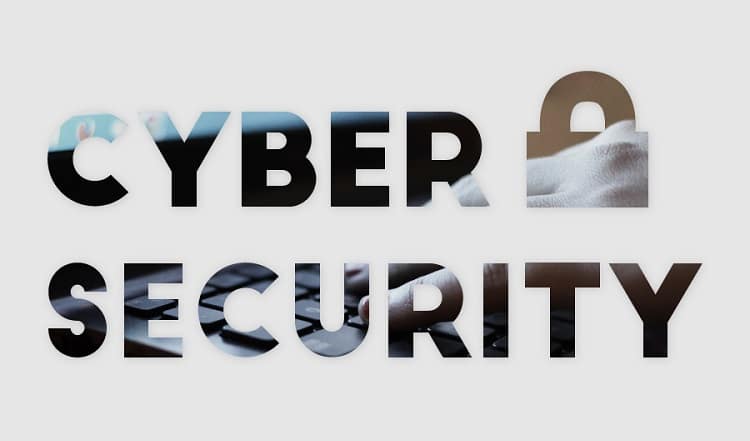Improved Cybersecurity for Your Employees

TechsPlace | With the increased portability and powerful functionality that Smartphone offer, the office is no longer the four walls where the company’s headquarters are. Remote working is more than just a trend; it’s the wave of the future. To that end, Cybersecurity becomes just as important as physically deploying guards outside your gates.
With each remote employee, there’s a gateway in need of security. Information is now virtually accessible from any device in any place possible, even a completely different country: this makes the process both better and worse, all depending on how it’s handled.
Usually, a company’s IT department leads the way in what practices employees should implement for Cybersecurity. However, anyone and everyone can and absolutely should learn the basics of it.
If you don’t know where to begin, the first step is this: don’t panic. Whether it’s being aware of the best VPN services available or knowing what to do in the event of a breach, it pays to keep your wits about you.
For the rest, we’re here to help. Read on and mentally (or physically) check these off your list while you add more to your peace of mind.
Cybersecurity awareness training
In-arguably, an employee has to be molded into his or her best form by the company so both entities can grow together.
To that end, the first step is awareness: in this day and age when everything is more interconnected than before, with credit card information linked to social media and home addresses and sensitive material all in our pockets, the need to protect your information is vital.
As mentioned previously, a strong IT department (specifically, the blue team – the one that handles policy management) goes a long, long way in this.
Provide regular training to the employees about the latest in how they can protect themselves from the latest in how they’re being targeted. Have an end-goal in mind: for all employees to be educated on the specific security level of your company.
Build a phish-proof workplace that recognizes malicious intent instantly. Teach them the repercussions carelessness can have (socially and financially) and how to be proactive in spotting and reporting problems.
Of course, there are firms (such as KnowBe4) that specialize in training employees as well. Think of this as an investment that can pay off very well.
Understand and implement VPNs
For complete online fortification, cybersecurity experts worldwide advocate the use of a VPN.
A VPN – Virtual Private Network – secures your (essentially unsecured) Internet connection by putting a wall around the unique identifier that sites and services use to track you: the IP address.
The top VPN providers can secure the entire company network without the need to do much else. Of course, it’s important that remote work is also routed through a VPN, however, as that is where the real un-moderated risk lies.
The threats associated with accessing company information outside of work are manifold: hackers, accidental data leaks, logs being kept by ISPs, forgetting to log out of public networks, the list goes on. Remote work is only good if it doesn’t bring a slew of new problems with it.
Inculcating the practice of connecting through a VPN in your employees is as vital as the Internet connection itself. Not realizing this can have a serious negative impact on your company.
A VPN, of course, protects you against all this without a single data stream to trace back to you or your system. With the IP addresses digitally disguised, it’s almost impossible to extract anything materially meaningful.
The importance of backups
Prevention is always better than cure, and in the case of a digital emergency, the best contingency plan is to have a regularly-managed backup of all the vital data needed for your company.
There are apps and services out there that can create unlimited bootable backups of your entire systems, ready to go at a moment’s notice. Security isn’t just to protect against attacks, but also to bounce back up better from disasters and errors.
It’s also possible that your files can be stolen in a ransomware attack. Hackers steal files from big companies and demand money payments to give the files back. With your files backed up, however, their threats mean nothing to you, absolutely nothing at all.
An interesting concept is the one of a three-two-one backup: three copies of all data, with two copies on different mediums, and one of them off-site.
Employees should do this both at home and at work. Of course, nearly everything mentioned in this article is important to be instilled into employees, especially as we go more into remote work territory, as without these habits being practiced at home, employees are more likely to slip up at work.
The final checks: passwords and phishing
Strong passwords, different on different accounts – this has to be the ground rule for passwords. A strong password usually means an actually randomly generated set of words, numbers, and symbols. It’s pointless to have a meaningful password, as that just makes it easy to guess.
It’s also important to teach employees to be more vigilant in spotting a scam or any sort of fake designed to steal information or undermine the cybersecurity system. Recognizing spam, reporting malicious websites, and hovering over links to see the URL instead of clicking everything straight away should be regular behavior.
This article is contributed by guest author on techsplace.com.





